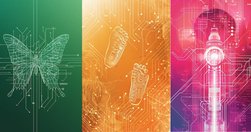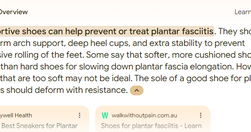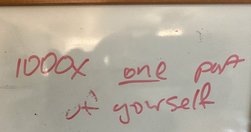Relevant Overviews
- Bluesky and the ATmosphere
- Communication Strategy
- Content Strategy
- Knowledge4Policy
- Fediverse
- AI Search
- Online Community Management
- Social Media Strategy
- Content Creation & Marketing
- Digital Transformation
- Change & Project Management
- Thinking tools
- Zettelkasten
- Learning from Andy Matuschak
- Personal Productivity
- Innovation Strategy
- Communications Tactics
- Psychology
- Media
- Politics
- Communications Strategy
- Science&Technology
- Business
- Large language models
Overview: Personal Productivity
There's so much out there written about personal productivity that it can be difficult to know where to start.
Most is what I call "productivity porn" - content created by and for people more interested in endlessly polishing and tweaking their "productivity stack" than actually using it. Some of the most successful content creators in this space, after obsessively developing highly sophisticated systems based around a particular combination of productivity tools, monetise it in the form of books and courses.
However there's a problem with this approach:
- each system has been painstakingly honed by the author for the author...
- ... but you're not the author, and - unfortunately - what works for them won't necessarily work for you
- moreover, trying to reverse engineer someone else's finely tuned system risks breaking it apart.
Personal Productivity Framework
You're better off developing your own - the question is how. The answer is to use a Framework - a way of thinking about personal productivity that helps each person find their own system, meeting their specific needs and preferences.
A lot of the content curated below went into my own personal productivity system, from which I've distilled a personal productivity framework which divides productivity into three pillars, with each pillar supporting the other two:
- time management: an “ideal day” ensures you work in synch with your brain’s ability to focus and ringfence your day’s Most Important Task, and carves out time for daily and weekly routines to support ..
- task management, which borrows liberally from Getting Things Done (GTD) and integrates it with …
- knowledge management: a content pipeline for managing everything from random thoughts to published content, and ensuring you get the most out of what you read.
I've written a fair bit about this myself (see what I think tagged #productivity), and recently boiled it all down to a short and inexpensive online course: Personal Productivity Framework.
Relevant resources

[EN translation] of Damien van Achter's "semi-automated monitoring and publishing system"This is essentially an automated, LLM-driven version of my content pipeline, where the AI actually writes and (following a human check) publishes the text to multiple platforms. The full process is 9 steps long, from (what I call) priority source identificatio…
"an information model that enables everyone to map their ideas and arguments in a modular, composable graph format... allow researchers to break the scientific research process into its atomic elements in a way that can be shared, remixed, and updated... Like Lego™️bricks... a decentralized knowledge exchange protocol designed to be implemented…
NotebookLM co-founder has until now "described NotebookLM as a tool for understanding and exploring the information you need... But we also think NotebookLM could be an AI-first distribution platform, amplifying expert knowledge on a wide range of topics... a preview of that vision: Featured Notebooks...the backstory... We’re going to be able to b…
"tools like NotebookLM only answer from your uploaded files. No making stuff up. No “convincingly wrong” summaries... isn’t about AI writing for you. It’s about AI helping you think through what you already collected... transforms research from a filing system into a conversation".After a brief description of how it works and what it doesn't do - …
Full title: "The Impact of Generative AI on Critical Thinking: Self-Reported Reductions in Cognitive Effort and Confidence Effects From a Survey of Knowledge Workers", first viewed and discussed on Bluesky."higher confidence in GenAI is associated with less critical thinking, while higher self-confidence is associated with more critical thinking..…
"This post was extracted from the draft of my December newsletter and published on Whitewind, demonstrating how a new array of apps on the ATmosphere - the ecosystem built with ATProto, Bluesky's protocol - could potentially usher in seamless decentralised collective intelligence."
With "Obsidian Web Clipper ... highlight and capture the web in your favorite browser. Anything you save is stored as durable Markdown files... customize how content is saved based on the website with powerful templates"Essential plugin for integrating Obsidian further into my personal content strategy.

"AI can not only improve short-term productivity of organizations but can also ... increase the organization’s collective intelligence."HBR starts well by pointing out the false dichotomy between thinking "about AI in terms of automation vs. augmentation... Augmentation doesn’t avoid automation, it simply hides it, usually in some lower-level". Ex…
"I rarely work for the same client for more than a year or two - generally enough to help them figure out their strategy, pilot and demonstrate it, and set up the team to mainstream it. But I make an exception for the Joint Research Centre"A few slides, repurposed for LinkedIn, setting out "some of the key innovations underpinning the Knowledge4Po…
“If you read 1,000 papers and build a powerful representation, humans can interrogate, mine, ask questions, and even get the system to generate new hypotheses...What you will learnAccelerating scientific discovery with generative knowledge extractionUnderstanding ontological knowledge graphs and their creationTransforming information into knowledg…
A Large-Scale Human Study with 100 NLP Researchers
I hope you had a good summer. I stayed and worked from home, and got a lot done thanks to the mercifully fewer meetings. I also read a lot of good stuff, and published one piece. Here's a selection.

Note-taking "software can’t automate your thinking. But I do think it can create the conditions for improved thinking: making new connections between ideas"helping reduce distraction"organizing your reading and making it more useful"Casey then intros a few apps he's started using since his last post, starting with "Capacities... Don’t take notes —…

Note-taking apps are "designed for storage, not sparking insights. Can AI change that?".Casey's info overload is worse then ever: "As a journalist, I’ve never collected as much data as I do now ... browsing four or five social feeds ... arXiv and pre-prints ... [leaves] a stack of research that I will never get through. Book galleys pile up ... a…
"There are now several Obsidian plugins available that allow you to use local LLMs instead of a commercial LLM provider", so PKM explorer tries Copilot for Obsidian plugin on his Windows laptop, because this plugin "not only offers the possibility to have a question and answer dialogue ... but also lets you [index your vault]... you can query the …

"The problem is not that AI is smarter than us, the problem is that it’s becoming increasingly easy for us to outsource our skills to AI... If we outsource our writing skills, we lose our writing ability... If we depend on AI to analyze information and make decisions, we lose our ability to think critically and analyze complex situations ourselves…

"Good tools can ... corral the daily deluge of research, interviews and half-formed thoughts into something coherent" - Westenberg's (Mac-focused) productivity stack consists of "Butter for drafting, Linear for managing projects and to-dos, and Readwise for wrangling research material".Reading up on her use of Readwise, in particular, reminds me t…

"I had just finished recording the final video of my personal productivity mini-course when I turned on the camera and ad-libbed from the heart. I was unprepared for what came out."
Really brilliant monologue on creativity and AI, putting the current moment in a historical context of industrialisation stretching back to the invention of the printing press."If we really could substitute for our labor with machines — ones that don’t pollute or create even more work — it wouldn’t be a problem, as long as we all felt okay about l…

A quick to learn framework to build your own personal productivity system without falling into the "productivity porn" trap.
"NotebookLM is powered by Google’s latest Gemini language model which supports up to 1 million context window... [you can]:upload documents, create multiple notebooks based on specific topics, and query notes...up to 50 sources per notebook, with each source supporting up to 500,000 words...type questions in the search box, and the AI pulls releva…
consilience is "the aspiration that the cross-pollination of ... perhaps initially unrelated snippets [of knowledge] can lead to spontaneous and unforeseen breakthroughs", but just downloading a notetaking app is not enough. "Folio is a system to accomplish that aspiration in Obsidian... a consolidation of many aspects of Obsidian’s notetaking cap…
"what causes the flow state, and what happens in the brain... a new study claims to have answers".There were 2 theories:"Hyperfocus... two brain networks unlock the flow state: the default mode network (DMN)... involved in things like daydreaming... spikes the most when we’re not engaged in any tasks" and "the executive control network (ECN), whic…

"Web search ... more like a rummage sale. Your chance of finding an item that addresses your specific issue... is pretty low. You’re not walking into a custom tailor. You’re in the thrift shop... seeing if you can put something together. Some sewing may be required."This, of course, "is mentally taxing", so either they skim, adding to cognitive lo…

Copy paste this into your nearest Word document or enterprise chat window, replace <> with your organisation's name and <> with whatever tool it uses to manage its knowledge, and you're good to go!

"a deep-dive on the concrete ways Sublime makes my life better", by Sublime.app founder Sari Azout.
Like me, the author has "been taking notes for over a decade ...ended up with thousands of notes that I never revisited. So I decided to train ChatGPT on my 3,743 Obsidian notes", which were created for "one purpose: content creation. So I use an improved version of the Zettelkasten".Apparently there are just 3 ways to use AI in your notes:... wit…
Google's AI-powered assistant: "Duet AI is a powerful collaborator that can act as a coach, thought partner, source of inspiration, and productivity booster — all while ensuring every user and organization has control over their data... you must first have an eligible Google Workspace plan."Via this post on "creating the perfect image for your pre…
Short video. Pretty mindblowing.

"My advice: Jump headfirst into AI with everything you’ve got."
Relevant Overviews
- Bluesky and the ATmosphere
- Communication Strategy
- Content Strategy
- Knowledge4Policy
- Fediverse
- AI Search
- Online Community Management
- Social Media Strategy
- Content Creation & Marketing
- Digital Transformation
- Change & Project Management
- Thinking tools
- Zettelkasten
- Learning from Andy Matuschak
- Personal Productivity
- Innovation Strategy
- Communications Tactics
- Psychology
- Media
- Politics
- Communications Strategy
- Science&Technology
- Business
- Large language models